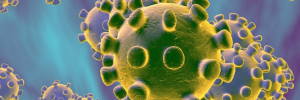
Corona Virus: What we know currently
The Corona virus has been all over the media in recent weeks and for good reason. The virus is relatively new and therefore, guidelines change daily as we learn more and more about it. To date, this is what we know; however, next week, this information will be outdated, and we will probably know more. But let us look at when this all started.
On 31 December 2019, a cluster of pneumonia of unknown etiology was reported in Wuhan City, Hubei Province of China. On 9 January Chinese authorities reported in the media that the cause of this viral pneumonia was initially identified as a new type of coronavirus, which is different from any other human coronaviruses discovered so far. Coronaviruses are a large family of respiratory viruses that can cause diseases ranging from the common cold to the Middle-East Respiratory Syndrome and the Severe Acute Respiratory Syndrome (SARS).
The clinical signs and symptoms of the patients reported in this cluster are mainly fever, with a few patients having difficulty in breathing, and chest radiographs showing bilateral lung infiltrates. Some cases were operating dealers or vendors in Huanan Seafood Market. From the currently available information, preliminary investigation suggests that there is no significant human-to-human transmission, and no infections among health care workers have occurred. More information is required to better understand the mode of transmission and clinical manifestation of this new virus. The source of this new virus is not yet known.
To date, there have been no reported cases in South Africa. Our recommendations for students and staff of Stellenbosch University that are travelling to, and returning from China, is to take necessary precautions and report to health care officials should they develop any symptoms.
As a way to reduce your risk of coronavirus infection:
- Clean your hands with soap and water or alcohol-based hand rub
- Cover your nose and mouth when coughing and sneezing with a tissue or a flexed elbow
- Avoid close contact with anyone with cold or flu-like symptoms
- Thoroughly cook meat and eggs
- Avoid unprotected contact with live wild or farm animals
If you want to discuss this further, or are worried about any symptoms, please make an appointment at Campus Health Service by calling 021 808 3494/6.
